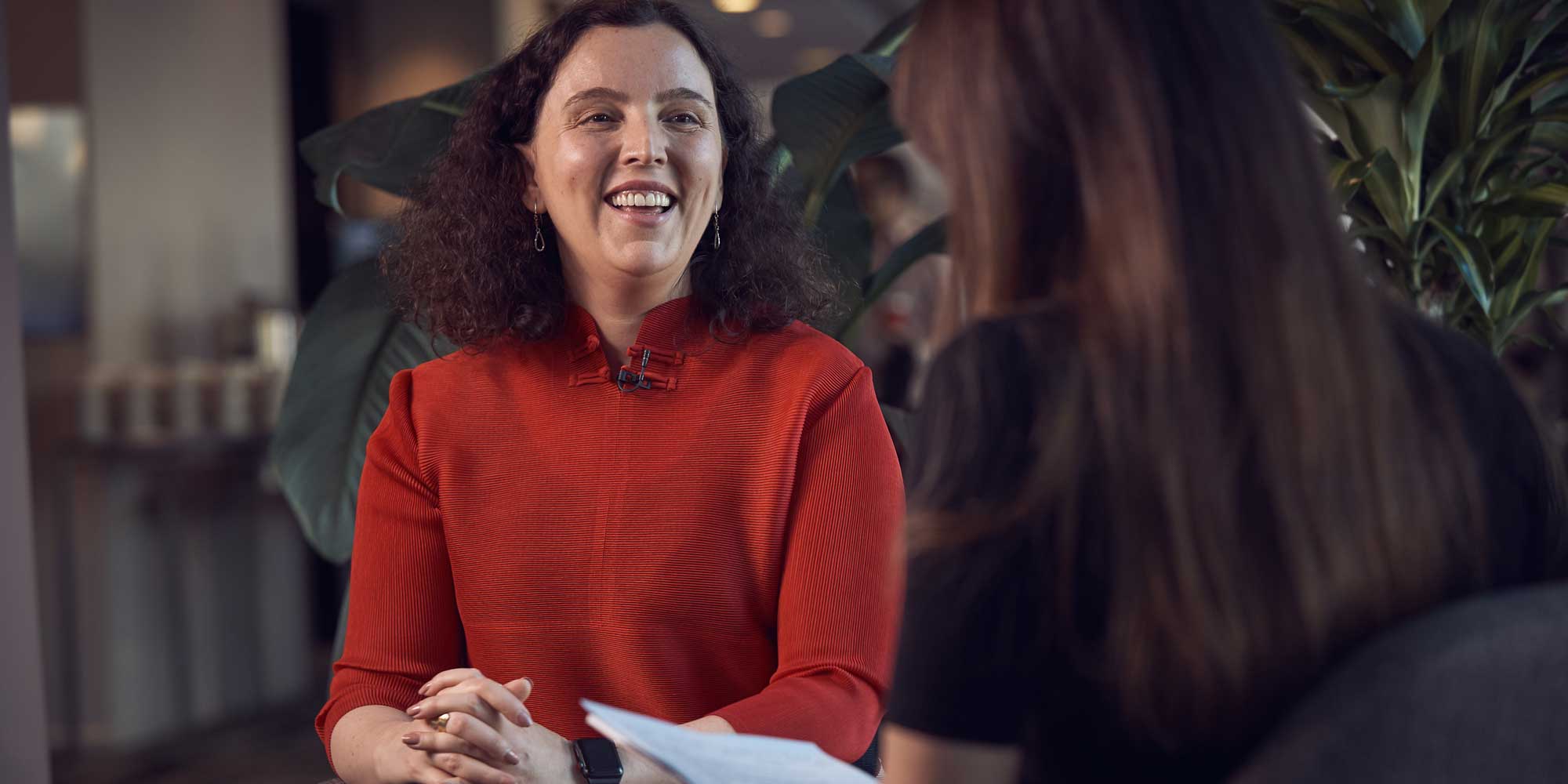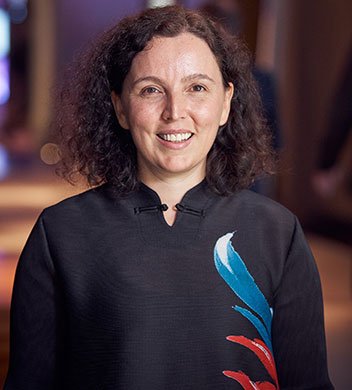Ines Almeida is a frequent and popular speaker at ADAPT events. Kylie Bonassi, Director, Brand Communication at ADAPT, talks to her about how she sells her message internally at Digital Edge. Don’t take yourself seriously, she says. But take the business seriously.
Imagination is very important, she says. Many of the best and most innovative ideas don’t come from senior management but from a creative workforce.
Kylie Bonassi:
Ines, thank you for joining us again. I love the quote where you mentioned minds are like parachutes. They only function when they’re open. Now when you look at innovation, how do you foster and harness innovation?
Ines Almeida:
Yeah, it’s something I’ve been thinking a lot about. I have over two decades of consulting experience, and what typically happens is that I see or am part of all of these corporate strategy and transformation visions. And what happens is, once you look at 100 of those from all over the world, you start realising that they are all the same, right?
We all talk about agility, when it comes to operating models, we all want a single customer view. And because we are stuck in those foundations, we are actually not using our imagination, our creativity, and we are really not innovating when it comes to serving our customers and customers needs.”
So bringing imagination back and creativity back is incredibly important. And being able to support different types of individuals in the organisation. You notice that because it’s easier to go to a board and talk about operational innovation or effectiveness. Why? Because reducing costs, everyone signs to check for a transformation that is cost-focused. But that is only valuable if it’s leading to a business that is responding to customer needs and is able to grow. So creativity, imagination and focusing on the customer.
Right now we have to these tools to do that and we have more data than ever. Data, data, data, we have AI and analytics that we need to use very cautiously, but it’s there. And we have people who aspire to make a difference in businesses that are ready to be unleashed, and who hate to be stuck in boxes. You can’t do that at the moment with young people. What they want is to add value and experience many different things. How do we make that happen in businesses?
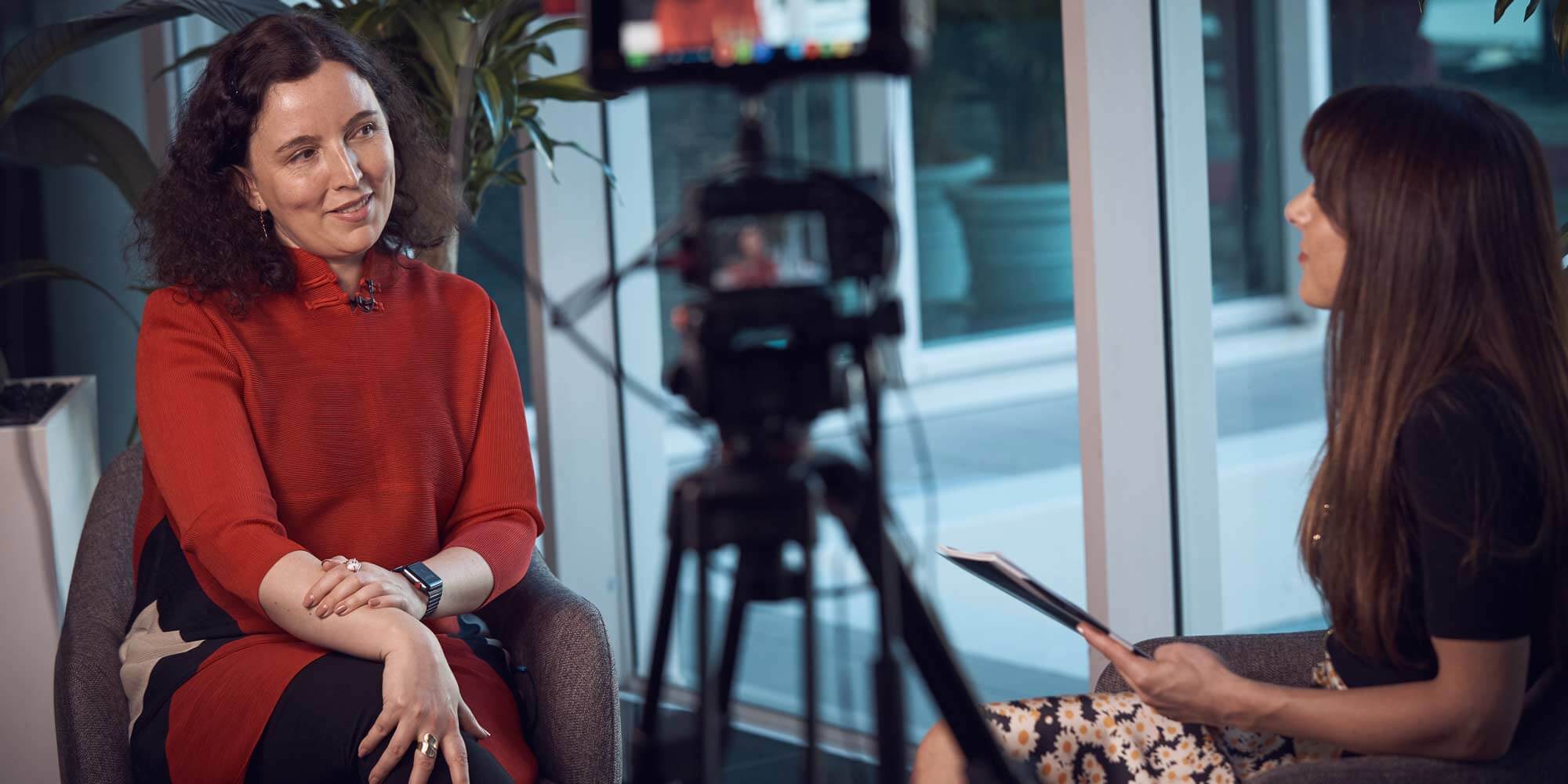
Kylie Bonassi:
You also spoke a lot about authenticity today. How do you maintain authenticity within an organisation when the direction is coming from the top?
Ines Almeida:
Well, for me, I almost don’t have I have to, it’s just who I am. But one of the things that I’ve learned through experience is that the times where I did my best work and add more value to the business when I was vulnerable and authentic. And it took me so much time to walk into a bank and say I’m a nerd, I can’t keep plants alive. I love Marvel movies, right? And storytelling and technology for me, I just might have the same conversation. And the first time I did that, actually, it was so well received. And people gave me a chance and I added value. And suddenly other people felt comfortable to be themselves. And I think it’s a bit of a wave where if someone starts, particularly if they are in a position of leadership of some sorts, everybody else feels permission to do the same.
Kylie Bonassi:
So then how do you be a maverick, whilst being a part of a group?
Ines Almeida:
Part of that is to take the business seriously. I’m able to. The last interview I had with a big corporation, I talked about business. And two minutes later, I was talking about the power of Marvel as an operating model! And then I said, hey, but I have 23 years of experience, I just choose to be like this,
And then the other thing is to take others seriously too. Because if you are in an environment where you have people with different points of view and different backgrounds, and if you are all able to manage friction, that friction is actually what powers innovation, right? Someone that thinks about risk, somebody else that is a little bit more of a maverick, that balance creates real change.
Kylie Bonassi:
In business, you tend to be surrounded by big personalities. How do you challenge your team without being challenging?
Ines Almeida:
Acting as a leader, and having different leadership styles, depending on the context, depending on the seniority and the place in time is incredibly important. So empathy matters.”
Sometimes you need to take on more command and control. Still, I do even today. Sometimes you need to listen and learn because innovation and great ideas don’t usually come from senior executive teams. And most importantly, you need systems thinking, you need to understand that most of the times it’s not the individual, but the system that drives poor behaviour. It’s actually how we can get the organisation out of the way and let people be themselves and do the best they can do to add value to the business.
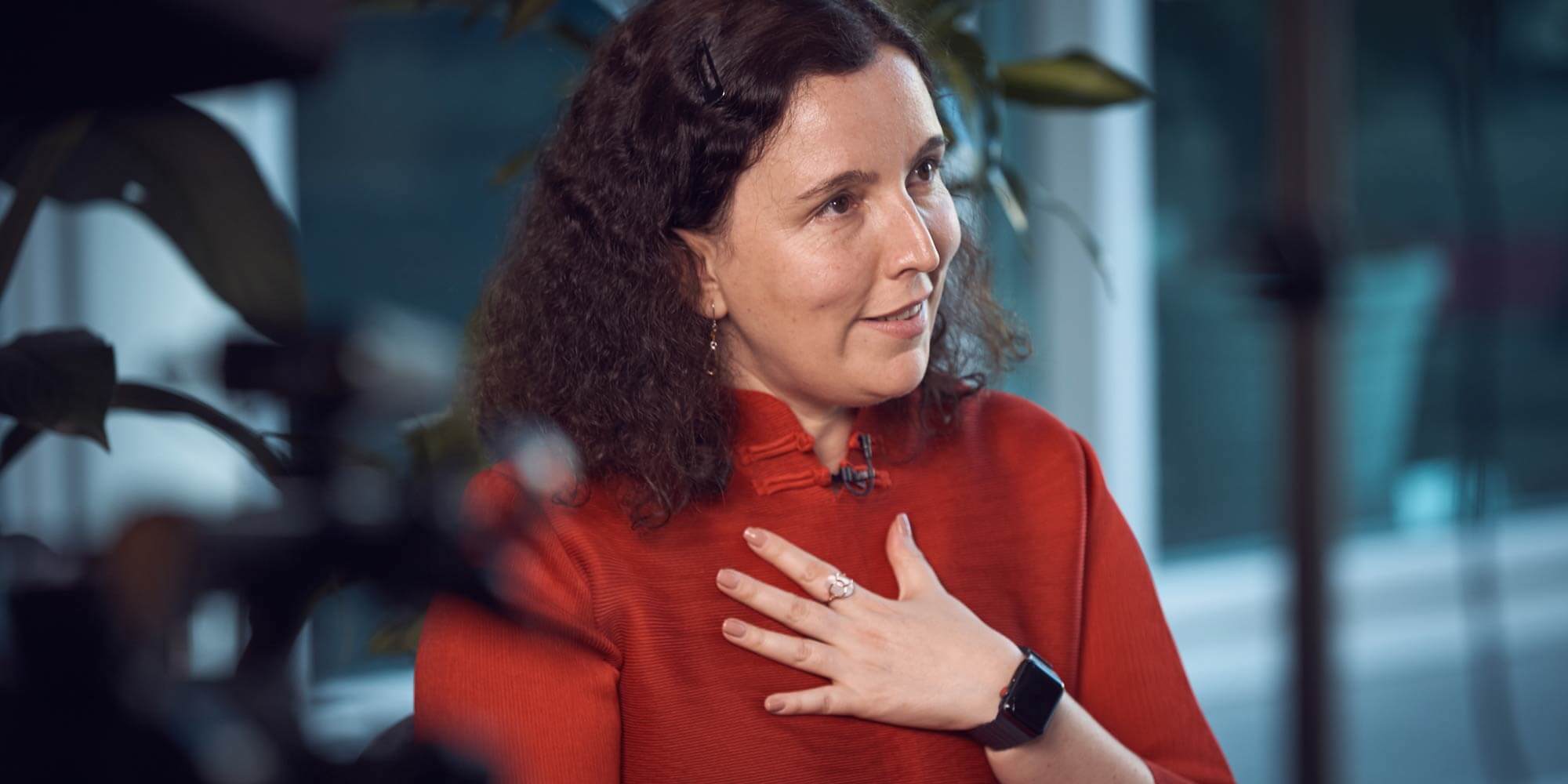
Kylie Bonassi:
Based on that, why is micromanagement bad?
Ines Almeida:
Micromanaging judgements are bad. Because in general, everybody needs to work to the best, have some autonomy, have some opportunity to learn, and add value and create some impact on your organisation. If you’re treating people like robots then go and hire robots to automate, right? They’re using people for a reason because they have a point of view and then uniqueness around the skill set that they bring. If that’s not what you’re doing, digitise.
Kylie Bonassi:
As a leader, how do you pass on your experience and your details and thoughts to your peers?
Ines Almeida:
Well, it’s interesting that I have a bad habit by nature. You see me speak on stage because I like speaking. Now the problem with that is that you can get too preachy and particularly when you’re 46 years old and have the experience. It’s like you want to share, I’m on a journey personally, as a leader, to stop talking so much. Listen and learn! It’s one of the things I struggle with because by nature I love to add the impact and sharing and add the value I see in things. So I’m not the most perfect example sometimes.
Now let me also talk about something that is important. I believe orchestration is important. I believe that for us to drive a team to add value in a particular area. experience and orchestration of all the value that can be added by that team are important. I see myself in that role. And I hope I’m adding value in that role.
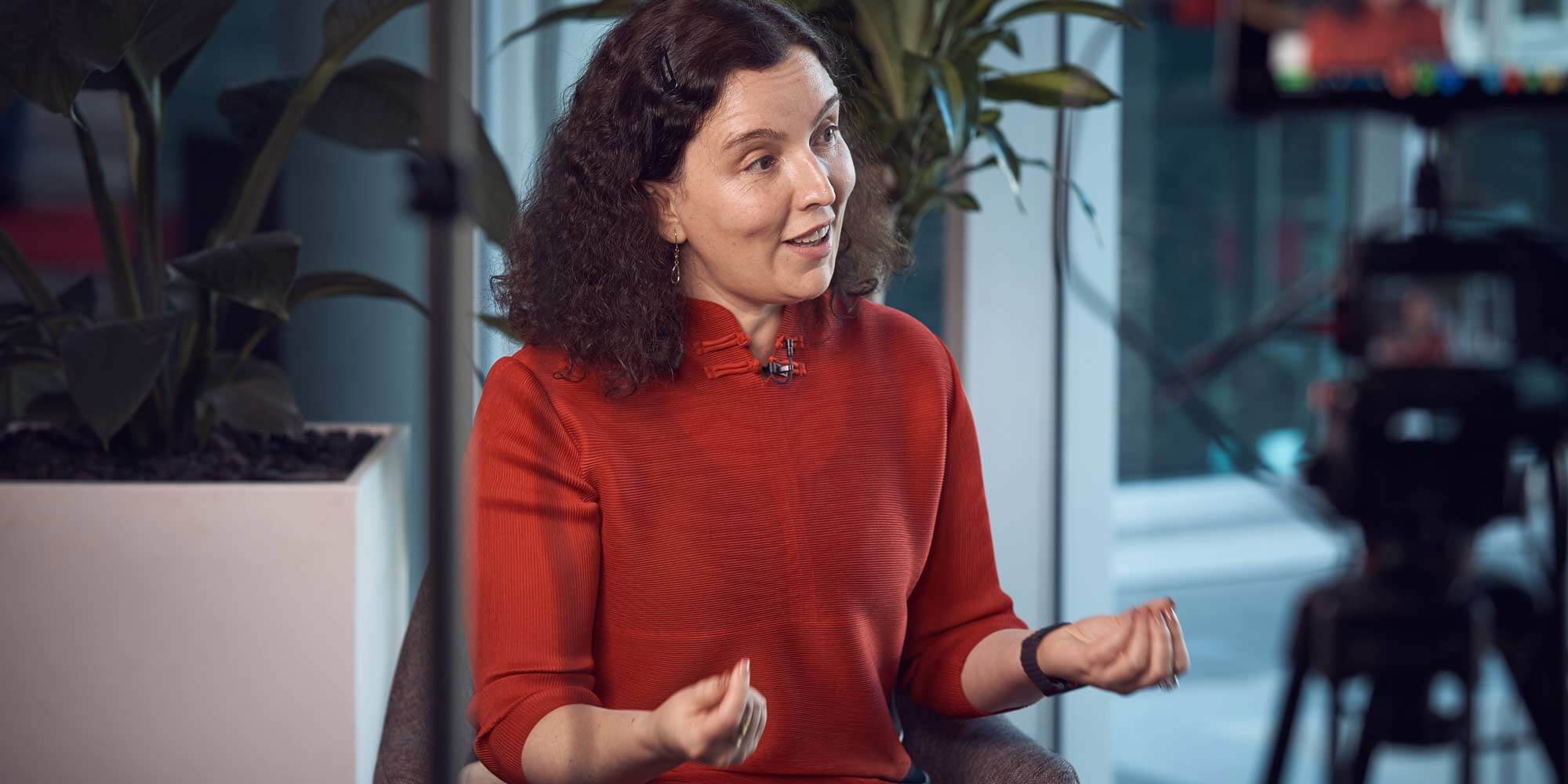
Kylie Bonassi:
How do you empower your team to think big?
Ines Almeida:
You’ll see that when leaders take the time to be silly and bring ideas from all sorts of environments, everybody else feels comfortable to be themselves. And I certainly always talk about it, I don’t settle for a band-aid. I want to solve issues where the root cause in big enterprises is a problem because that means sometimes fixing governance instead of agile.
Kylie Bonassi:
Does that make sense? That’s being incredibly honest.
Ines Almeida:
And ambitious in impact. And when you do that, everybody starts doing the same. Not settling for Oh, I’m applying a band-aid to a problem because this is an area I can control. We need to look at the root cause and we need to make a difference there.
 WATCH
09:04
WATCH
09:04





















